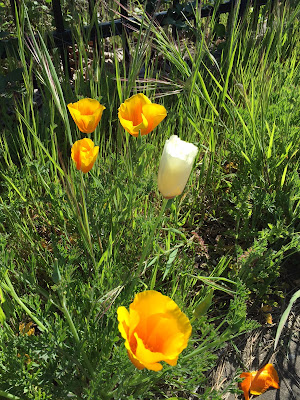In 1902, William James the
father of American psychology, urged the study of transcendent experiences.
James believed experiences we enjoy with a sense of wonder represent
reality. Often this “true reality” eludes us as we stay busy in our day-to-day lives.
We need to discover our true nature through interactions with the natural
world. He felt these encounters held keys to help us explore the
possibilities of human personality.

Fifty years later, Abraham
Maslow began his explorations into self-actualization. Maslow focused on peak
experiences. He described these as moments of intense joy, wonder,
appreciation, or a spiritual relationship.
Maslow felt educators could
promote peak experiences by instilling a sense of wonder and appreciation in
children.
As a result of opening
individuals to a sense of wonder, he believed more creative individuals would
abound in sciences and the arts.
Each day provides opportunities
to witness and appreciate nature's ways of expressing beauty. Designs and expressions whirl
around us in bird song, wing movements, and cloud formations.
The scent of jasmine, a poppy opening, smile from a stranger, or the expression of someone we love vaults us to elation, awe, and wonder.
These elevations to bliss provide personal well-being.
The scent of jasmine, a poppy opening, smile from a stranger, or the expression of someone we love vaults us to elation, awe, and wonder.
These elevations to bliss provide personal well-being.
Imagine your life and the world energized by love, respect, and joy. Replacing frustration with wonder comes in small breaths with opened eyes and ears.
Discover an opening never
considered before in a flower or yourself.
Search for peak experiences
that reveal humanity at its best in optimal flourishing.
Appreciate the variety of nature's offerings.
Experience the sun and
breeze on your skin. Observe with your fingers how a rose unfurls.
Promote your wonder. Find solace
in something greater that ever imagined.









No comments:
Post a Comment